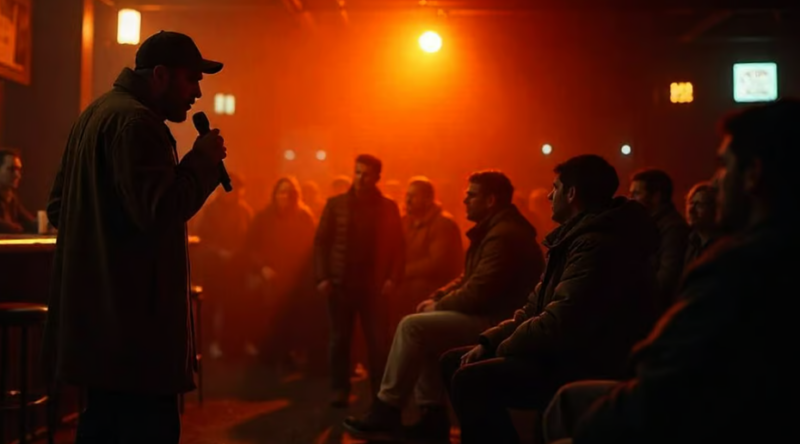
Even as stand-up comedians and content creators find themselves facing police action for their work, the Supreme Court today reminded the authorities of the right to freedom of speech and expression guaranteed to citizens under the Constitution of India.
A bench of Justices Abhay S Oka and Ujjal Bhuyan held,
“75 years into our republic, we cannot be seen to be so shaky on our fundamentals that mere recital of a poem or for that matter, any form of art or entertainment, such as, stand-up comedy, can be alleged to lead to animosity or hatred amongst different communities. Subscribing to such a view would stifle all legitimate expressions of view in the public domain which is so fundamental to a free society.”
Particularly on expression through artistic forms, the Court said,
“Literature including poetry, dramas, films, stage shows including stand-up comedy, satire and art, make the lives of human beings more meaningful. The Courts are duty-bound to uphold and enforce fundamental rights guaranteed under the Constitution of India.”
The Court passed the judgment while quashing a First Information Report (FIR) registered against Congress Member of Parliament (MP) Imran Pratapgarhi over a poem uploaded by him on social media.
Pratapgarhi was booked by Gujarat Police based on a complaint filed by an advocate’s clerk, who alleged that the MP had shared a video on social media featuring a poem titled “Ae khoon ke pyase baat suno…” playing in the background.
Gujarat Police had invoked Sections 197 (imputations prejudicial to national integration), 299 (deliberate acts intended to outrage religious feelings), and 302 (uttering words to wound religious sentiments) of the Bharatiya Nyaya Sanhita (BNS). On the invocation of these provisions, the Court said,
“To say the least, it is ridiculous to say that the act of the appellant is intended to outrage the religious feelings of any class by insulting its religion or religious beliefs. The poem only tells the rulers what the reaction will be if the fight for rights is met with injustice.”
Criticising law enforcement for their failure to understand the right to free speech, the Court said,
“This case shows that even after 75 years of the existence of our Constitution, the law enforcement machinery of the State is either ignorant about this important fundamental right or does not care for this fundamental right.”
The judgment comes at a time when criminal cases are being filed against content creators across the country.
Just recently, it was reported that a case was filed against stand up comic Kunal Kamra for criticising Maharashtra Deputy Chief Minister Eknath Shinde in his stand-up special titled Naya Bharat.
In reaction to the comments, Shiv Sena activists vandalised the studio where Kamra had performed. The vandals are presently out on bail.
Last month, YouTuber Ranveer Allahabadia was booked for what he said in Samay Raina’s India’s Got Latent show. The Supreme Court initially criticised the content creator, calling Allahabadia’s comments “very dirty” and “depraved”.









